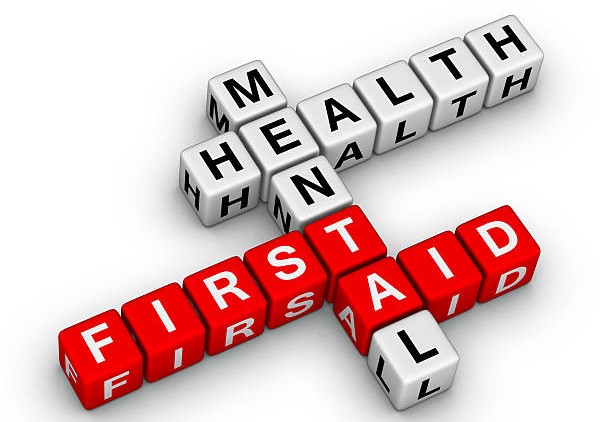A 2022 survey found that 90% of Americans think their country is experiencing a mental health crisis. That’s an alarming figure. A figure that probably grew during the COVID-19 pandemic. And it suggests that society must up its game to provide mental health support.
Being trained to use first aid kits can save someone’s life. Yet, few people know about the impact of mental health first aid training. Thankfully, we’re going to explore this topic in detail. Read further to learn about the significant long-term benefits of first aid for mental health.
What is Mental Health First Aid?
Mental Health First Aid (MHFA) is a training program that was developed in Australia in 2000. The program has evolved and is now delivered in 24 countries. It’s designed to educate people on how to provide initial assistance to someone in a mental health crisis. It also teaches how to help someone who is developing a mental health problem.
Like physical first aid, MHFA equips individuals with the necessary knowledge and skills. They’re taught to identify signs and symptoms of mental health issues. And they’re also trained to offer support and guide individuals toward professional help.
Let’s take a look at the five undeniable benefits of mental health first aid.
Increased Mental Health Awareness
MHFA can help us move towards becoming an informed, and supportive society. A society that prioritizes mental health and well-being. The training provides knowledge, skills, and resources. These can help individuals to recognize and respond to mental health emergencies.
There’s still much to learn about mental health issues. We know that they often lead to higher medical expenses and poorer performance at work. Plus, failing to treat mental health problems can increase the risk of suicide. Mental health first aid training teaches lots of important skills. Participants learn to recognize early warning signs of mental health challenges.
They’ll learn about symptoms and risk factors for common mental health problems. This will cover depression, anxiety, bipolar, or substance abuse disorders. The knowledge can help them to identify when someone may be struggling. Awareness is an excellent place to begin. Understanding and acceptance are essential ingredients to move past mental health problems. Having someone do so can remove a significant barrier to dealing with their illness.
Better Treatment Outcomes
MHFA training has a positive impact on treatment outcomes. Things can get worse left unchecked, but the course encourages early intervention. Individuals become skilled in recognizing early warning signs and symptoms of a mental health episode. They can then intervene quickly and provide initial support. And they can guide the person toward receiving professional help soon.

Early intervention can often prevent the worsening of symptoms. And this can reduce the number of emergency situations and hospitalizations. Having trained, competent people providing help can make a huge difference. MHFA contributes to improved recovery rates by helping people get the treatment they need. It leads to better long-term outcomes for individuals experiencing mental health problems.
Overcoming the Stigma
MHFA training also focuses on challenging the stigma surrounding mental illness. Social stigma can often make the situation worse. It can often inhibit people from seeking treatment. Almost 90% of people with mental health problems say that stigma harms their lives.
The MHFA course shows that mental health issues are common and that seeking help is a sign of strength, not weakness. It dispels harmful misconceptions and negative stereotypes. Instead, it promotes accurate information and empathy to reduce the stigma around mental health.
Education gives individuals a deeper understanding of the diversity of mental health challenges. They come to see that they can affect people of all ages and backgrounds.
MHFA empowers individuals to engage in open conversations. And this can help to reduce the fear and discrimination associated with mental health issues. It can also encourage those who are suffering to seek help and find a suitable support network.
Long-Term Positive Impact on Well-being
MHFA not only focuses on crisis response. It also promotes mental health self-care. There’s a positive long-term impact for both participants and those going through mental health challenges. Through early intervention and supportive environments, people’s well-being will improve. Preventing the development of mental health problems will lead to a happier and healthier society.
MHFA training offers well-being strategies that can benefit both individuals and communities. It empowers individuals to take an active role in their own mental well-being.
The course provides a holistic approach to well-being. Participants learn self-care strategies and techniques to build resilience. Methods include stress reduction, healthy coping mechanisms, and self-reflection. These are essential for maintaining good mental health in the long term.
Strengthens Communities
The training can be beneficial for building mentally healthy communities. It encourages community members to take an active role in offering mental health help. And it’s designed to have a long-term positive impact on individuals and society at large.
The MHFA course promotes empathy and understanding toward individuals facing mental health challenges. It teaches effective communication strategies to offer support. And an empathetic and compassionate community makes everyone feel supported and understood.
Participants become advocates for mental well-being, sharing their knowledge within their communities. This contributes to creating caring communities that offer support to those in need.
Make Mental Health a Number One Priority
Hopefully, you now understand why MHFA training is so valuable. Through increased awareness and early intervention, MHFA can play a vital role in building mentally healthy communities and enhancing overall well-being.




